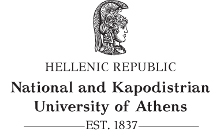Special elective course (Spring semester)
Aims and Objectives
The course provides an overview of the field of organized interest groups and discusses the role of influence/pressure in policy (lobbying strategies) in a comparative and transdisciplinary manner (political science, international politics and political sociology). It examines the genesis, evolution and transformation of interest groups in contemporary democracies. It presents the main facets of the phenomenon as it has been developed in Europe and elsewhere in the world and explores how they fit into the political and democratic process. Particular emphasis is placed on the influence through mediation, consultation, information and lobbying of interest groups in the design of contemporary public policies as well as their relationship with state structures, as well as European and international institutions. The course highlights the main theoretical currents and research methods in the specific field of analysis while discussing specific case studies.
Upon successful completion of the course, the student:
- Critically understands the historical evolution, development and wider significance of the role of interest groups in European and international politics.
- Acquires basic knowledge in a comparative perspective regarding the profile, mode of operation and action of the actors involved (financial, business, professional, consulting actors, etc.).
- Explain the main differences between the action patterns of the interest groups and the corresponding rules of accountability and transparency by referring to corresponding examples from the European and international experience.
- Develops basic research skills in the field of interdisciplinary analysis of the phenomenon of politico-economic influence.
- Acquires familiarity with basic concepts, theoretical tools and approaches developed in the specific field of research.
Weekly Syllabus (3h lecture)
- Week one: Interest groups and public affairs: historical formations, evolution and identity of actors.
- Week two: The concept of civil society and policy networks. Theories of interest group formation.
- Week three: The role of lobbying in contemporary democracies: influence strategies and bargaining power of interest groups.
- Week four: The role of interest groups in negotiation processes and decision-making of the European Union.
- Week five: Lobbying and diplomacy: states-lobbyists and public (and digital) diplomacy, lobbyists in service of the state, institutions between lobbying and diplomacy.
- Week six: Interest Groups and lobbying in the United States.
- Week seven: Power capture in the digital age: the case of Silicon Valley
- Week eight: State control and lobbying in China.
- Week nine: Transnational interest groups and globalization
- Week ten: The problem of regulatory and cognitive 'capture'. The political uses of expertise and science.
- Week eleven: The problem of conflict of interest. The convergence of public and private space.
- Week twelve: Private interests and public interest. Citizen anti-lobbying, whistleblowers and public interest.
- Week thirteen: Legal regulation of lobbying and transparency. Lobbying regulation in the European Union.
